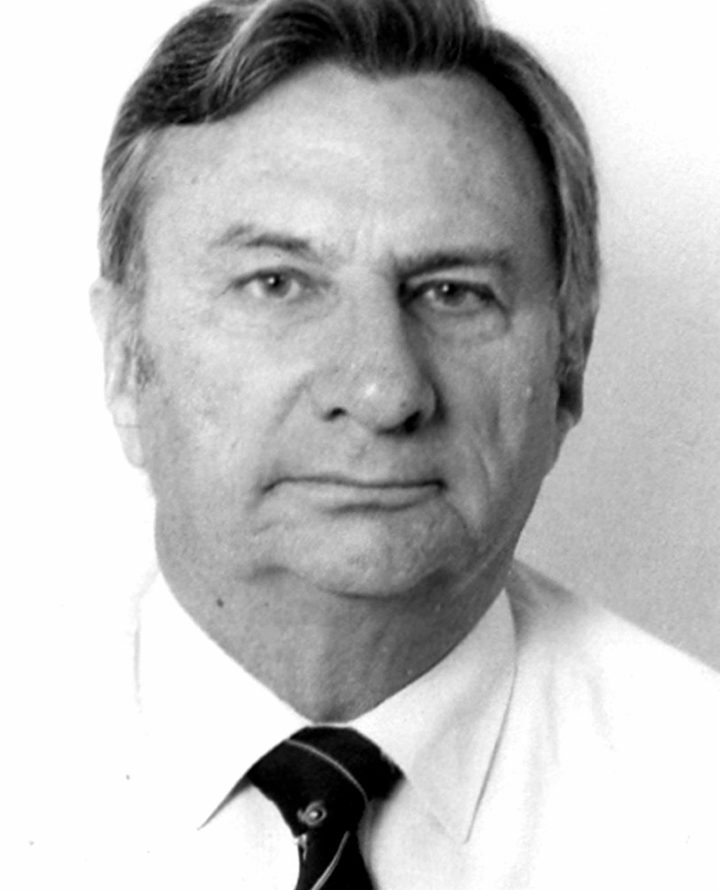Maverick Citizen: Tribute
Loss of another giant of South African medicine – Professor Hugh Philpott

Last week Professor Hugh Philpott (1927 - 2020) died peacefully at his home in Durban. He was one of the gentle giants of South African medicine, health and human rights.
Hugh Philpott was an obstetrician of international standing. Although coming from SA, he practised medicine in remote rural areas of Nigeria and Zimbabwe, before returning to South Africa. He was appointed as the second academic head of the department of obstetrics and gynaecology at the University of Natal in 1974.
Philpott was also a devout Christian throughout his life. He saw it as part of his calling that, despite practising medicine during the darkest days of apartheid, and at a time when the quality of healthcare was differentiated on the basis of race, he should be a shining light to students (black and white) and a model of ethics, service and concern to the poor communities he served.
The University of KwaZulu-Natal, announcing his death, pointed out how:
“He was globally recognised for the promotion of the graphic recording of labour which assisted in saving the lives of mothers and their babies during childbirth. This became known as the ‘Philpott Partograph’ and remains the basis of recording clinical events during the birthing process.”
Put simply by leading obstetrician, Dr Eddie Mhlanga “the Philpott Partograph is a chart to help midwives and doctors to know what to do and when, so that both mother and baby are safe from birth injury and death”. It provides an early warning system of things going wrong in labour, allowing timely action, a structured way to monitor progress in labour.
The University of KwaZulu-Natal continued: “He made a huge contribution to obstetrics in South Africa, Zimbabwe and globally with implementation of community midwifery and the use of the partogram, which encouraged safe deliveries at clinics by trained advanced midwives and referral pathways for complicated cases.”
For these reasons, Cambridge University Press includes Philpott in its book Eponyms and Names in Obstetrics and Gynecology. His extensive list of scientific publications is testament to his combining academia and medical practice.
Although Philpott’s name may not be known by many outside the medical profession, within it he is a giant. News of his death led to a flood of tributes from former students, mentees and people influenced by his example as a doctor and a humanitarian. Professor Helen Rees, for example, said that his partogram “has saved possibly millions of lives of children and mothers”. Dr Ayanda Ntsaluba called him a “great servant of the country”.
To help cement his memory and transfer his ethic and approach to medicine to the next generation of healthcare workers, Maverick Citizen invited two leading health professionals to reflect on their memories of Philpott and his legacy:
According to Eddie Mhlanga (MB, ChB (Natal); Diploma in Maternal and Child Health (Natal); FCOG (SA); Obstetrician & Gynaecologist), first Director: Maternal, Child & Women’s Health, National Department of Health; Provincial Specialist, Mpumalanga:
Professor Philpott was a great teacher, mentor, innovator and father. He was human. Umuntu.
He was instrumental in facilitating health democracy in South Africa, championing human rights for women and children. He championed the promotion of sexual and reproductive rights, including the Choice on Termination of Pregnancy Act and the Confidential Enquiry into Maternal Deaths.
He struggled for the dignity and rights of students in Alan Taylor Residence (at the University of Natal). He opposed the apartheid tendencies in religious institutions and associations. He housed students during boycotts and periods of so-called unrest.
A son of a Baptist Church minister, he lost his mother at sea, the ship she was in was sunk by a submarine. He was a principled and practical Christian, and often joined in the Students Christian Fellowship services. As mentioned, his home was our home as black students; his family, my family.
He met with the ANC in exile in Zambia and in Swaziland. He engaged a government minister during the occupation of Alan Taylor Residence by the army in 1977 in order to have the army withdrawn. Through his contacts, he facilitated the admission of Dr Nkosazana Dlamini into a British medical school to complete her medical degree.
His wife preceded him in transition in the early part of the lockdown. He is survived by his five children and grandchildren.
Many of his students and colleagues will remember him with fondness and gratitude. Many women and children in Africa and elsewhere benefit from his intervention. Many have been spared the humiliation of the fistula which he taught to prevent and to repair.
Phumula ngokuthula, Solwazi Philpott.
According to Dr John Gear (MBBCh, DPH, DTM&H, DSc (honoris causa) (all Wits), DPhil (Oxon), FCP(SA)) previously academic head of Community Health and then Academic Director of Wits Rural Facility; currently Medical Director, Tshemba Foundation working at Tintswalo Hospital:
Hugh epitomised the human being to whom we all aspire. Modest to a fault, caring beyond reason, a wonderful and internationally recognised clinician in his chosen field of obstetrics, inspiring teacher, passionate in his beliefs and convictions, a champion of women’s rights and dignity, and above all a role model to so many of us wondering about our role as white South Africans in the struggle.
As the first full professor and head of the academic department of what was then Community Health at Wits, I was both burdened and privileged with the mantle of a tripartite appointment calling for my loyalty to a liberal university – but with provincial government and the state’s expectation of my working within the parameters of a cruel apartheid healthcare paradigm.
Hugh’s example and fortitude were often the foundation on which I based decisions, sublimating personal and selfish needs and fears to a greater cause and resisting pressure to compromise and cooperate.
As a specialist physician with a strong tendency to allow my feelings for individual patients to distort my views of public good, my conversations with Hugh provided the bedrock for treading that delicate path linking the two seemingly conflicted disciplines to a point where I was comfortable to start to push the boundaries of primary care without undermining my tertiary care roots. This gave me the chance to help many of my fellow clinicians discover new meaning and value in public health and away from the traditional abattoir inspections and water purification works designs indelibly imprinted in the minds of medical students graduating before 1980.
Hugh was partly instrumental in giving me the conviction to establish the Health Services Development Unit at Tintswalo Hospital, Acornhoek, in 1980 focusing much of our early energy on training professional nurses to function “where there was no doctor”. I was deeply supported in this work by a group of dedicated medical students and young graduates who embraced the call to rural care; the legacy of that early endeavour continues to this day.
Thank you, Hugh, who with Professor Sam Ross, provided much of the encouragement and moral support to swim against the academic tide of urban tertiary healthcare.
Hugh and I maintained intermittent contact over those troubled decades and he was always a moral and wise compass on the constantly plunging deck of immensely challenging times.
As a postscript, Eddie Mhlanga and I were Kellogg International Health Fellows in the early 1990s with Hugh’s son Graham, who epitomised the values and passion of his admirable father.
Hugh shall be sorely missed, but always appreciated and revered by those who were privileged enough to share some of his life’s journey. DM/MC


















Shortly after completing my degree I was privileged to serve on the Student Christian Association Regional Committee with him. I will always remember him as being very soft spoken, but with a vast breadth of wisdom. The last time is saw him, I bumped into him in a shop. He was obviously getting very old but his mind still seemed sharp and he told me in his slow careful way how he was involved helping in a school in the valley. That just typifies the man that Professor Philpott was.